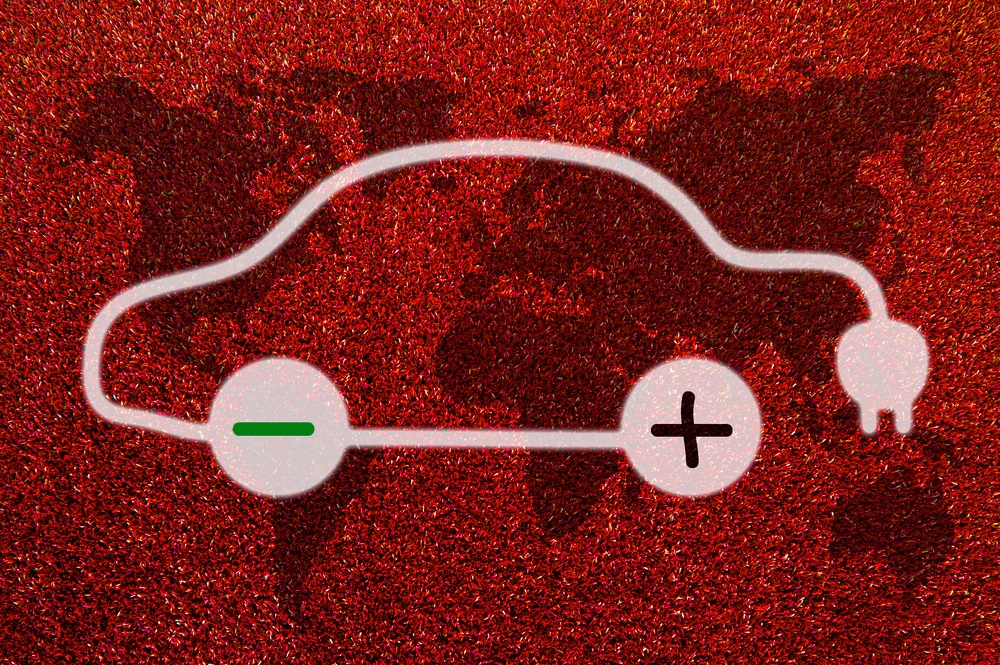Resistance To EV Mandates Intensifies Among Car Dealerships

Table of Contents
H2: Financial Concerns and Investment Barriers
EV mandates place substantial financial burdens on car dealerships, requiring significant upfront investments and operational adjustments. The transition isn't simply a matter of adding a few EVs to the showroom floor; it necessitates a comprehensive overhaul of infrastructure and employee expertise. Dealerships face a confluence of financial challenges:
-
High upfront costs of EV charging stations and maintenance: Installing and maintaining a network of reliable charging stations represents a considerable capital expenditure, especially for smaller dealerships. These costs extend beyond the initial purchase price, encompassing ongoing maintenance, electricity bills, and potential repairs.
-
Need for specialized EV mechanic training and certification: Servicing EVs requires specialized knowledge and tools different from those used for gasoline-powered vehicles. Training existing staff and hiring certified EV mechanics adds to the financial burden, especially given the relatively limited number of qualified technicians available currently.
-
Potential for unsold EV inventory due to slow consumer adoption: Dealerships risk being saddled with unsold EV inventory if consumer demand doesn't match mandated sales targets. This ties up capital and reduces profitability, especially given the higher initial investment in EV stock compared to gasoline vehicles.
-
Decreased profit margins on EVs compared to gasoline vehicles: Current profit margins on EVs are often lower than those on gasoline vehicles, making it challenging for dealerships to recoup their investments in infrastructure and training.
Smaller, independent dealerships are particularly vulnerable, lacking the financial resources of larger corporations to absorb these substantial costs and adapt to the changing market dynamics. The financial strain resulting from EV mandates is a primary driver of the growing resistance.
H2: Consumer Demand and Market Readiness
While EV sales are growing, the current level of consumer demand still falls short of the ambitious targets set by many EV mandates. Several factors contribute to this gap:
-
Low consumer awareness of EV benefits and incentives: Many consumers remain unaware of the environmental and financial benefits of EVs, as well as available government incentives.
-
Limited charging infrastructure in many areas: Range anxiety—the fear of running out of battery power before reaching a charging station—remains a significant barrier to EV adoption. The uneven distribution of charging stations, particularly in rural areas, exacerbates this concern.
-
Higher purchase price of EVs compared to gasoline vehicles: The initial cost of EVs remains significantly higher than comparable gasoline vehicles, deterring many budget-conscious consumers.
-
Range anxiety and concerns about charging time: Consumers are concerned about the limited driving range of some EVs and the time required to recharge them, especially compared to the speed and convenience of refueling gasoline vehicles.
This disparity between mandated sales targets and actual consumer demand creates significant challenges for dealerships, increasing the risk of inventory losses and impacting profitability. The market isn't yet ready for the aggressive adoption levels imposed by some EV mandates.
H2: Infrastructure Limitations and Government Support
The lack of robust charging infrastructure is another major factor driving resistance to EV mandates. The current infrastructure is inadequate to support widespread EV adoption:
-
Uneven distribution of charging stations across regions: Charging stations are concentrated in urban areas, leaving many rural communities underserved.
-
Lack of fast-charging infrastructure on major highways: Long-distance travel remains challenging for EV drivers due to the scarcity of fast-charging stations along major highways.
-
Inconsistencies in charging standards and compatibility: The lack of standardization in charging technologies creates confusion and inconvenience for consumers.
-
Insufficient government investment in charging infrastructure development: Government investment in charging infrastructure needs to significantly increase to meet the demands of a rapidly expanding EV market.
Government incentives and subsidies are crucial to mitigate these challenges. A coordinated, nationwide approach to infrastructure development is essential to ensure a smooth transition to widespread EV adoption.
H3: The Impact of EV Mandates on Dealership Employment
The shift to EVs could lead to job losses within dealerships due to reduced demand for gasoline vehicle sales and service. Dealerships will need to invest in retraining and upskilling their workforce to support EV sales and service, requiring significant investment in training programs. Government programs supporting this workforce transition will be essential to mitigate potential job displacement.
Conclusion:
The resistance to EV mandates among car dealerships is fueled by a complex interplay of factors. The substantial financial burdens, insufficient consumer demand, inadequate charging infrastructure, and the need for workforce adjustments all contribute to this growing opposition. Addressing these concerns is crucial for a successful transition to electric mobility. Policymakers need to engage in meaningful dialogue with dealerships and consider implementing more gradual and realistic targets, accompanied by comprehensive support programs to address the financial and infrastructural challenges. Ignoring the resistance to EV mandates will only hinder the advancement of sustainable transportation and ultimately undermine the goals of increased EV adoption. Addressing the resistance to EV mandates, and creating a more supportive and realistic framework for their implementation, is paramount for a successful transition to electric vehicles.

Featured Posts
-
 Blue Origins Launch Abort Details On The Subsystem Malfunction
Apr 27, 2025
Blue Origins Launch Abort Details On The Subsystem Malfunction
Apr 27, 2025 -
 Pne Ag Ad Hoc Mitteilung Gemaess Wp Hg 40 Abs 1
Apr 27, 2025
Pne Ag Ad Hoc Mitteilung Gemaess Wp Hg 40 Abs 1
Apr 27, 2025 -
 Dealerships Renew Opposition To Government Ev Mandates
Apr 27, 2025
Dealerships Renew Opposition To Government Ev Mandates
Apr 27, 2025 -
 Un Ano De Salario Por Maternidad La Wta Marca Un Hito En El Tenis Femenino
Apr 27, 2025
Un Ano De Salario Por Maternidad La Wta Marca Un Hito En El Tenis Femenino
Apr 27, 2025 -
 Paolini Y Pegula Sorpresa En Dubai Eliminadas De Wta 1000
Apr 27, 2025
Paolini Y Pegula Sorpresa En Dubai Eliminadas De Wta 1000
Apr 27, 2025
